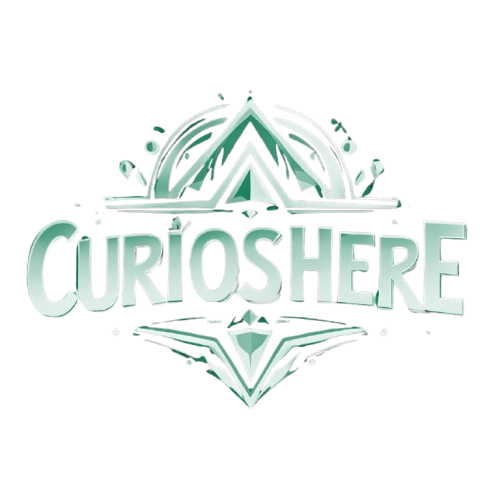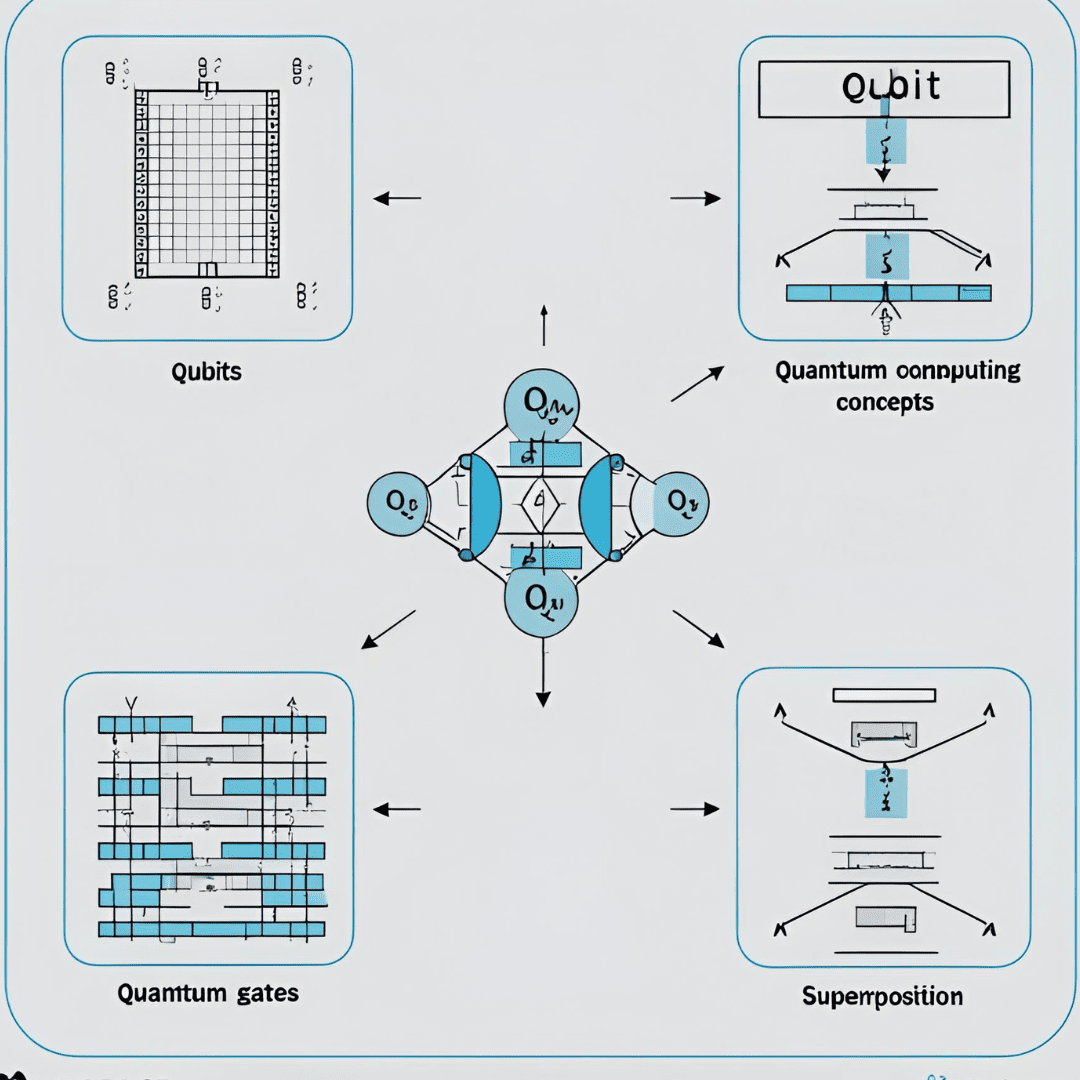Quantum computing may seem like a distant and complex field, usually associated with physicists in white coats and intricate equations. However, with the steady growth of this revolutionary technology, an increasing number of resources are becoming accessible to anyone curious, even if their background doesn’t include years of theoretical physics study. If you’re an avid programmer, a technology student with a thirst for knowledge, or an enthusiast fascinated by the future of computation, this guide has been especially crafted for you to take your first steps on this quantum journey.
The excellent news is that you don’t need to master quantum physics to grasp the fundamentals of quantum computing. Below, we’ll introduce intuitive platforms, comprehensive online courses, introductory books, and educational videos that will help you begin your exploration of this fascinating universe. Prepare to expand your horizons and discover the power of the quantum bit!
1. Mastering the Foundations: The Importance of Programming Logic
Before diving headfirst into quantum concepts, it’s crucial to have a solid understanding of programming fundamentals. While expertise in physics isn’t a prerequisite, programming logic is the master key to navigating the world of quantum computing. If you already have experience in languages like Python, great! This prior knowledge will be a valuable asset. Otherwise, learning to program is an excellent first step on this journey.
To build a solid foundation in programming, you can start with high-quality, free online courses such as:
- Python for Beginners (available on platforms like Codecademy or Coursera): Ideal for those who have never programmed before or want to improve their Python skills, a language widely used in quantum computing.
- CS50 – Introduction to Computer Science (offered by Harvard University): A comprehensive introductory course that covers the fundamental concepts of computer science, including programming logic and algorithms.
These courses will provide you with the necessary tools to develop logical reasoning and familiarity with programming syntax, skills that will be indispensable when programming quantum algorithms in the future.
2. Your Personal Quantum Lab: Platforms for Beginner Experimentation
The good news is that you don’t need a superconducting laboratory to start experimenting with quantum computing. Several online platforms offer free quantum simulators and access to quantum cloud services, allowing you to begin your first experiments without the need for expensive and advanced hardware.
- IBM Quantum Experience: IBM offers an interactive and intuitive platform where you can build and experiment with visual quantum circuits and simulate quantum algorithms on IBM’s real quantum processors. The platform also provides extensive documentation, step-by-step tutorials, and practical examples, making learning accessible for beginners.
- Microsoft Quantum Development Kit: Microsoft provides a powerful set of tools, including the Q# (Q Sharp) programming language, specifically designed for quantum computing, and integration with the Visual Studio development environment. Microsoft also offers a rich variety of free tutorials to assist in learning the language and developing quantum algorithms.
- Google Cirq: Google also has its own quantum computing platform, called Cirq. It is particularly interesting for those with some prior programming experience who want to explore quantum algorithms in an intuitive and flexible development environment using the Python language.
These platforms are excellent starting points for beginners as they eliminate the barrier of physical hardware and allow you to develop your skills practically and iteratively, building an intuitive understanding of quantum concepts.
3. Unraveling Quantum Theory: Online Courses for Beginners
For those who wish to delve into the theory behind the quantum magic and learn how to program quantum algorithms on different platforms, a variety of high-quality online courses are available, teaching quantum computing from the most basic concepts. Some of the best options for beginners include:
- Quantum Computing for Everyone – Coursera (taught by MIT): This course is an exceptional introduction to the world of quantum computing. It presents the fundamental concepts in an accessible way, without requiring in-depth prior knowledge of physics. The course explores the principles of qubits, superposition, and entanglement clearly and didactically.
- Intro to Quantum Computing – Udemy: A simple and straightforward course focusing on understanding the fundamentals of quantum computing and how these principles can be applied in practical quantum programming.
- Quantum Computing Fundamentals – edX (offered by the University of Maryland): Provides a solid introduction to the essential concepts of quantum computing and demonstrates how these concepts can be applied to solve complex problems that challenge classical computers.
These courses are ideal for those seeking a robust theoretical understanding of quantum computing, preparing the ground for the practical exploration of programming quantum algorithms on various platforms.
4. Deep Dive into the Pages: Introductory Books to Quantum Computing
Books are a valuable tool for gaining a deeper and more structured understanding of quantum computing concepts. Here are some recommendations for introductory books that are accessible and ideal for those without a physics background:
- “Quantum Computation and Quantum Information” – Michael A. Nielsen and Isaac L. Chuang: Considered one of the reference works in the field, this book offers a detailed exploration of the quantum theory of computation and information. Although it is a technical book, its approach is carefully structured and accessible for dedicated beginners.
- “Computação Quântica para Todos” – Chris Bernhardt: Este livro oferece uma excelente introdução à computação quântica, desmistificando conceitos complexos sem recorrer à física avançada. Ele explica de forma clara e acessível qubits, portas lógicas quânticas e algoritmos quânticos fundamentais.
- “Dançando com Qubits: Como a computação quântica funciona e como ela pode mudar o mundo” – Robert S. Sutor: Uma leitura mais leve e envolvente, voltada para leitores sem formação técnica prévia. Este livro é perfeito para quem está começando do zero e deseja uma visão geral do potencial transformador da computação quântica.
Esses livros são complementos perfeitos para seus estudos on-line, fornecendo uma visão mais ampla de como a computação quântica funciona e como ela tem o potencial de revolucionar vários campos da ciência e da tecnologia.
5. Aprendizagem visual e auditiva: vídeos e podcasts educativos
Se você aprende de forma mais visual ou prefere absorver conhecimento por meio da audição, vídeos e podcasts podem ser recursos incríveis para expandir sua compreensão da computação quântica de forma dinâmica e envolvente. Algumas sugestões valiosas incluem:
- YouTube – “Computação quântica para os determinados”: esta série de vídeos criada por Michael Nielsen oferece uma explicação clara, divertida e intuitiva dos fundamentos da computação quântica, tornando conceitos complexos acessíveis a um público amplo.
- Podcast “The Quantum Daily”: Este podcast oferece notícias atualizadas, entrevistas com especialistas e explicações simplificadas sobre os avanços e conceitos da computação quântica, tornando-o ideal para iniciantes se manterem informados de forma acessível.
- YouTube – “MinutePhysics”: Este canal popular oferece vídeos curtos e educativos sobre física e computação quântica, abordando conceitos complexos de forma leve, concisa e altamente compreensível por meio de animações criativas.
Esses vídeos e podcasts ajudam a absorver conceitos-chave de uma forma mais interativa e agradável, tornando o aprendizado mais prazeroso e eficaz.
6. A maestria vem com a prática: experimentação e experiência prática
Por fim, a maneira mais eficaz de realmente aprender computação quântica é por meio da prática consistente. Dedique tempo à experimentação de algoritmos quânticos em plataformas como IBM Quantum Experience e Google Cirq. O conhecimento se consolida por meio da aplicação prática, e a computação quântica exige uma abordagem prática para desenvolver uma compreensão intuitiva dos conceitos.
Comece com exemplos simples, modifique circuitos existentes e tente construir seus próprios algoritmos quânticos básicos. Com tempo e prática dedicada, você começará a internalizar conceitos fundamentais como superposição, emaranhamento e o funcionamento de algoritmos quânticos, revelando o poder computacional único do mundo quântico.
Lembre-se: a jornada para entender a computação quântica é uma maratona, não uma corrida de velocidade. Seja paciente consigo mesmo, comemore cada pequena vitória e continue explorando este campo fascinante. O futuro da computação está esperando por você!







